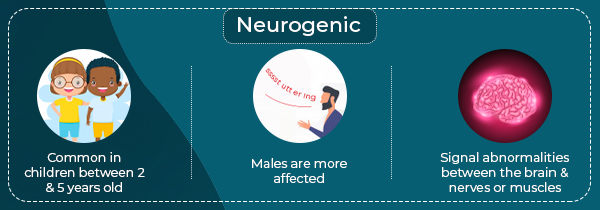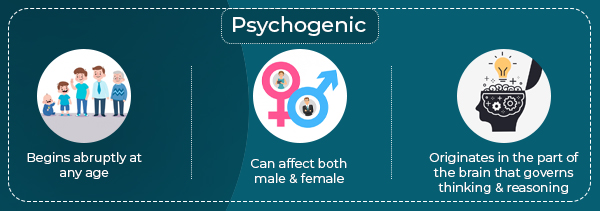Just In
- 25 min ago

- 42 min ago

- 2 hrs ago

- 3 hrs ago

Don't Miss
- News
 Bha: New Shoe Sizing System To Replace US/UK Sizes: What It Is And Why It Matters For India
Bha: New Shoe Sizing System To Replace US/UK Sizes: What It Is And Why It Matters For India - Movies
 Ranneeti: Balakot & Beyond Full Series LEAKED In HD For Free Download After Its Release; DEETS -
Ranneeti: Balakot & Beyond Full Series LEAKED In HD For Free Download After Its Release; DEETS - - Automobiles
 India's Aviation Authority Mandates Children Under 13 To Sit With Parents On Flights
India's Aviation Authority Mandates Children Under 13 To Sit With Parents On Flights - Sports
 IPL 2024: RCB to Play 250th IPL Match Today - Records by Seasons, Win Percentage, Latest Stats So Far
IPL 2024: RCB to Play 250th IPL Match Today - Records by Seasons, Win Percentage, Latest Stats So Far - Finance
 JPMorgan CEO Jamie Dimon Hails PM Modi's Economic Reforms, Urges US to Follow Suit; Details
JPMorgan CEO Jamie Dimon Hails PM Modi's Economic Reforms, Urges US to Follow Suit; Details - Education
 JEE Main Result 2024 Out, Telangana's 15 Toppers Shine, Check Statewise List of 56 Candidates with Perfect 100
JEE Main Result 2024 Out, Telangana's 15 Toppers Shine, Check Statewise List of 56 Candidates with Perfect 100 - Travel
 Escape to Kalimpong, Gangtok, and Darjeeling with IRCTC's Tour Package; Check Itinerary
Escape to Kalimpong, Gangtok, and Darjeeling with IRCTC's Tour Package; Check Itinerary - Technology
 OPPO Find X7 Ultra Camera Deep-Dive: Pushing the Boundaries of Photography on a Smartphone
OPPO Find X7 Ultra Camera Deep-Dive: Pushing the Boundaries of Photography on a Smartphone
Stuttering: Types, Symptoms, Causes, Diagnosis And Treatment
In order to deliver the right information, one must be able to speak clearly and fluently. When a person has trouble speaking in a fluid, or flowing way, for example, he/she may say the whole word or parts of the word more than once, or pause awkwardly between words - it is termed as stuttering.
A speech disorder, it is also called as stammering or diffluent speech. Stuttering usually develops between the age of 2 and 6 years old [1] .
Many children go through normal periods of dysfluency lasting for around 6 months and as the child's development progresses, the stuttering will stop. Dysfluencies lasting longer than this may need intervention. Stuttering can even be seen during adolescence or adulthood [2] .
Types Of Stuttering
The speech disorder is classified into three different types and they are as follows [3] :
Developmental

Neurogenic

Psychogenic

Symptoms Of Stuttering
Stuttering is characterised by repeated words, sounds, or syllables, halting speech production and uneven rate of speech [4] .
Other signs that indicate the speech disorder are as follows:
- Frustration when attempting to communicate
- Refusal to speak
-
Hesitation
or
pausing
before
starting
to
speak
Using extra sounds or words into sentences, such as 'uh' or 'mm' - Facial tics
- Lip tremors
- Excessive blinking of eyes
- Tension in the face and upper body
- Repetition of words or phrases
- Head jerks
- Clenching fists
Causes Of Stuttering
There is no specific cause for the speech disorder. However, the probable causes are as follows [5] :

- Family history of stuttering
- Development during childhood
- Neurophysiology
- Family dynamics
- Being in contact with another stutter
- Abnormalities in speech motor control
Apart from the aforementioned, neurogenic stuttering can be caused by brain injuries and severe emotional trauma can cause psychogenic stuttering [6] .
Diagnosis Of Stuttering
If your child or someone you know stutters, you should get help from a Speech-Language Pathologist (SLP), as early as possible. Because, it is important to intervene children or adults with stuttering at the earliest, as it not only affects the way a person speaks but also nurtures feelings like fear, shame, avoidance, isolation anxiety, guilt etc. Hence early intervention has faster progress and helps to reduce its negative consequences [7] .
There is no requirement for invasive testing.
Treatment For Stuttering
Not everyone who stutters will require treatment because developmental stuttering usually resolves with time. The medical and emotional care provided for individuals with stuttering is as follows [8] [9] :
- Speech therapy: It can help interruptions in speech and improve one's self-confidence. Therapy focuses on controlling speech patterns by monitoring the rate of speech, breath support, and laryngeal tension.
- Electronic devices: Various electronic devices are available to enhance fluency.
- Parent-child interaction: Parental involvement in practising techniques at home is a critical step in improving the child's stuttering.
- Cognitive behavioural therapy: This type of psychotherapy can help you learn to identify and change ways of thinking that might make stuttering worse. This therapy is also beneficial for managing the related stress, anxiety and self-esteem problems [10] .
Do's And Dont's For Parents & Caregivers
- Don't finish their sentences: As a parent or teacher or even a listener you might be tempted to finish their sentences to help them but this does more harm than good.
- Don't look distressed or avoid eye contact: You need to let the person know by your manner that you are paying attention and listening to what they say rather how they say it.
- Don't say, relax, or slowdown: Such simple advice can be demeaning to them.
- Don't speak deliberately too slow or too fast: Talking naturally promotes good communication model.
- Provide an opportunity to talk: You need to allow them to speak without distractions from family members, classmates or friends.
- Be patient: Give them enough time to talk e.g.: give the person time to answer a question before you ask the second one.
- Be aware of their difficulties: Persons with stuttering may have factors that aggravate their difficulty e.g.: telephonic conversation, time pressure, unfamiliar listeners, fatigue or stress.
- Repeat or rephrase: You can repeat or rephrase what the person says that you have understood it.
With inputs from Rekha D, Speech-Language Pathologist
- [1] Yairi, E., & Seery, C. H. (2015). Stuttering: Foundations and clinical applications. Upper Saddle River, NJ: Pearson.
- [2] Ward, D. (2017). Stuttering and cluttering: frameworks for understanding and treatment. Psychology Press.
- [3] Guitar, B. (2018). Stuttering. Lippincott Williams & Wilkins.
- [4] Packman, A., & Attanasio, J. S. (2017). Theoretical issues in stuttering. Routledge.
- [5] O’Brian, S., Carey, B., Lowe, R., Onslow, M., Packman, A., & Cream, A. (2016). The Camperdown Program stuttering treatment guide. Australian Stuttering Research Centre.
- [6] Andrews, G., Howie, P. M., Dozsa, M., & Guitar, B. E. (1982). Stuttering: Speech pattern characteristics under fluency-inducing conditions. Journal of Speech, Language, and Hearing Research, 25(2), 208-216.
- [7] Mozaffarilegha, M., Namazi, H., Tahaei, A. A., & Jafari, S. (2019). Complexity-based analysis of the difference between normal subjects and subjects with stuttering in speech evoked auditory brainstem response. Journal of Medical and Biological Engineering, 39(4), 490-497.
- [8] Davidow, J. H., Grossman, H. L., & Edge, R. L. (2019). Stuttering Frequency, Speech Rate, Speech Naturalness, and Speech Effort During the Production of Voluntary Stuttering. Language and speech, 62(2), 318-332.
- [9] Sander, R. W., & Osborne, C. A. (2019). Stuttering: Understanding and Treating a Common Disability. American Family Physician, 100(9).
- [10] Zamani, P., & Latifi, S. M. (2019). T he efficacy of prolonged speech technique in boys with mild stuttering.
-
 insyncChildren's Day 2022 : Speech Ideas For Teachers & Students On Children's Day
insyncChildren's Day 2022 : Speech Ideas For Teachers & Students On Children's Day -
 disorders cureAphasia: Types, Causes, Symptoms, Diagnosis And Treatment
disorders cureAphasia: Types, Causes, Symptoms, Diagnosis And Treatment -
 women10 Best Hard-Hitting Quotes Of Sushma Swaraj
women10 Best Hard-Hitting Quotes Of Sushma Swaraj -
 disorders cureVeteran Actor Arun Bali Passes Away At 79: What Is Myasthenia Gravis: Symptoms, Causes And Complications
disorders cureVeteran Actor Arun Bali Passes Away At 79: What Is Myasthenia Gravis: Symptoms, Causes And Complications -
 pulseWATCH: Speech Of Muslim Teacher On Why She Wears Hijab Is Trending
pulseWATCH: Speech Of Muslim Teacher On Why She Wears Hijab Is Trending -
 kidsReasons For Speech Delay In Kids
kidsReasons For Speech Delay In Kids -
 basicsMother's Anti-Depressant Use Linked To Baby's Speech Disorder
basicsMother's Anti-Depressant Use Linked To Baby's Speech Disorder -
 insyncRobert Pattinson To Appear On The View
insyncRobert Pattinson To Appear On The View -
 wellnessDid You Know Your Own Blood Can Be Used For Pain Relief?
wellnessDid You Know Your Own Blood Can Be Used For Pain Relief? -
 health5 Things To Try In Addition To Therapy For Mental Health Illnesses
health5 Things To Try In Addition To Therapy For Mental Health Illnesses -
 healthUncovering the Rise of Physiotherapy Practices in India
healthUncovering the Rise of Physiotherapy Practices in India -
 healthIs Yoga Better Than Therapy For Depression?
healthIs Yoga Better Than Therapy For Depression?


 Click it and Unblock the Notifications
Click it and Unblock the Notifications



